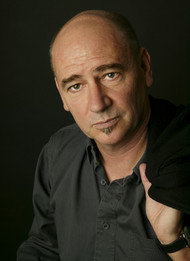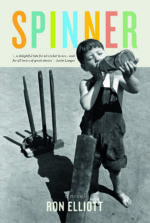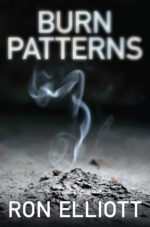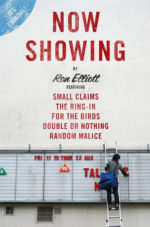INTERVIEW: Ron Elliott

Ron Elliott discusses his version of ‘the great Australian novel’ and the journey both he and his characters went on to tell the story of Spinner.
Why cricket? Could you have told a similar story using a different sport as the backdrop?
This story was always going to be about cricket. I don’t just mean because the epiphany moment came about when Shane Warne bowled ‘that’ ball. There was something about cricket at the time that I was playing with the idea that contained a specialness, both in considering a game that takes days to play but also in its image concerning fairness and honour. When I thought of the story there were still genuine debates about whether a batsman should ‘walk’ if they’d nicked it. I know that’s changed now. Perhaps the book will appear even more nostalgic than it already is.
However, the other issue was in David’s capabilities. As a boy, even with freakish ability, it simply was not credible that he could be capable of being the best; there are definite limits concerning size and strength that put most sports out of the question. Even fast bowling requires too much strength to contemplate a twelve-year-old achieving what David does.
And even then I worked hard to make it credible, with his grandfather’s tutelage and his genetic gifts in the freakish length of his limbs, especially his fingers. Then I had him practice for hours every day. And then I added the turning of the taps on the farm. It seems to me, even with all this, David still needed an enormous amount of luck and an uncle willing to cut some corners for us even to be close enough to believe David could be as good as he is and still only be twelve.
So, it was twelve-year-old David and it was cricket, right from the start. (They were fairly large impediments to the early telling and acceptance of the story – take that from me.)
There are elements to Spinner that make it a fable-like story. Did you set out to tell a fable, and if so, why?
I had always conceived Spinner as mythic. In some respects I was attracted to trying to write ‘the great Australian novel’, which meant bringing some larger story structures to this piece. I’d been a bit of a fan of Joseph Campbell and, after seeing the first Star Wars film, I paid a lot of attention to a work called The Writer’s Journey by Christopher Vogel. It was all the rage in scriptwriting around the world. I was a big fan of Stephen Donaldson’s Thomas Covenant series, and this was probably an influence too.
But the structure is one of a quest. David has to leave his home and journey through the unknown, passing the Sentinel and enlisting helpers so he can save the country – in this case from the English (ha!) but also to restore the land’s faith.
I think the major thing I played with in terms of the fable was to introduce Michael as a kind of wounded trickster, rather than as a wise helper that appears in other stories. This made the telling much more dangerous I think.
I learnt from other stories as I went along. There’s a film called The Natural with Robert Redford, which is about a baseball player and suggests special forces at work in the player’s gifts. Incidentally, another piece about baseball, the first chapter of Don DeLillo’s Underworld, gave me the confidence to try to tackle the moment-to-moment excitement in the cricket play. And I have read Peter Carey’s Oscar and Lucinda and Robert Drewe’s The Drowner, both of which play with Australian historic moments.
So my attitude to dragging in important moments in relation to the Aussie psyche became freer as I proceeded: the drought and the Great Depression and then the attitudes to the First World War, mateship and a fair go and wandering working class men telling tall tales. So I started exploring all those male-world things about our view of Australia and the past. Bodyline, which happened years later, also proved useful, as did other historic figures, but I researched some of the facts, then twisted and amalgamated them to suit my story. I think this obvious and less obvious manipulating starts to make the story more magical rather than more real.
I was reading a review of some new books on Burke and Wills the other day and liked what was said about us retelling that story in a completely false way because it reasserts certain basic things we believe about ourselves. Only in my story, I also wondered if it were possible for my main character to win. So other tensions came into it too (in regards to a heroic story), such as this need for ‘ordinariness’ in Australian heroes.
But also, during all the writing, the notion of the storytelling itself and who was doing it and what the readers were doing with all that was starting to come to the fore. I pushed some of it back, but as I wrote it was evident that the parallel of storytelling–spinning was starting to work with the fable/myth of the novel. (Anyway, it would have been a great fairy story, if only I had made it up. As we all know, David Donald really did exist. His remarkable bowling figures in Wisden attest to that. I’ve merely imagined what he was thinking while history sets out the facts of the matter.)
Tell us about the development of David. How did he come into being?
David came fully formed into the first chapters of the book. His fingers grew a little longer and I later learned about his dyslexia – he was always kind of Pip from Great Expectations, but his unnamed guilt and insecurity came from ‘feeling too much’. And then there was this indomitable will. But after that, from the moment his uncle arrived, I just learned about him as we went along.
Although … that’s not quite true. In the first incarnation of the rough plot, I didn’t have to know what was in David’s mind, because I first conceived of it as a television series. But then, with the idea of the novel, I entered his mind. And when I decided to take the journey from his point of view, then things really took off. But, as I say, the boy in the town of Dungarin was just there, ready to be taken, rather unwillingly, on this journey.
You’ve said that you had to avoid using slang that wasn’t around in the 1930s – how did you work out which slang to use and which is too recent?
I’m not sure there’s a very interesting answer to this question. I realised that there’s an enormous amount of American slang around in my world. And a huge amount of swearing in my personal lexicon. I tried allowing Michael to use the ‘F’ word a fair bit in the early drafts, and it started to feel wrong. And many of the slang words that I could allow Michael on occasion were justified by his exposure to the US soldiers in the war. I felt before then, in the 1920s, we were both much more British but also much more cut off. Australia cut off from the world, but Perth and WA cut off more again. So for David, living further off in the mythical town of Dungarin, it seemed his language would be quite limited. (Hence so many of his metaphors are either from the farm or from his grandfather).
Anyway, once those decisions were made, I did some research to try to find words that were particularly from the First World War. And to capture the feel of the time without it being a documentary. It also became a matter of friendly readers and my editor Georgia and I trying to weed out words that sounded wrong, both in terms of David’s limited but growing vocabulary, and also in Michael’s quite well-read and well-travelled love of performative kinds of speechifying. Oh, and then we also weeded out stuff like Bex, which turned out to be way later than the 1920s. Georgia and I had many discussions over particular words and objects and perceptions regarding David and the world, but the damn Americanisms were the hardest.
What are your current (of future) writing projects?
I have seven feature scripts that have been developed by producers and government agencies waiting and raring to go. I’m working on a new low-budget script with a director in Queensland.
But I really want to get at two other novels, both of which I’ve been researching for the last couple of years.
One is a psychological thriller involving a fire investigator and a psychologist. On one level it is a straight thriller, but I’m really interested in the state of the ‘talking cure’ and ideas of fire and heat and point of view and communication within that. I think I’d like to do that next as it is contemporary and a change of pace from Spinner, but it needs some extra research on clinical psychology and also fire investigation.
The other one is part of an idea I have for a series of novels based on an American in Albany in 1890. His name is Emmet and he’s a drunk and he has a Chinese sidekick and he’s not chasing gold but a woman he met on the other side of the world. It mashes up history in many of the ways that Spinner does and would be another kind of hybrid genre. Anyway, I’ve worked out some of my main characters and the main plot and did a unit of Western Australian history at UWA last year to help me zero in on some primary sources. However, I need to learn to ride a horse and fire a six-shooter and climb some more Stirling Ranges before I’m ready to start that one. But, as I say, I envision an entire series.
They are the two I really want to get at, but I have a multimillion-dollar heist movie gestating and another warped rock star idea for either a novel or film. On the other hand, I have this day job at Curtin University and the occasional television script, so I do not have as much time as I’d like. The itch is growing again.





